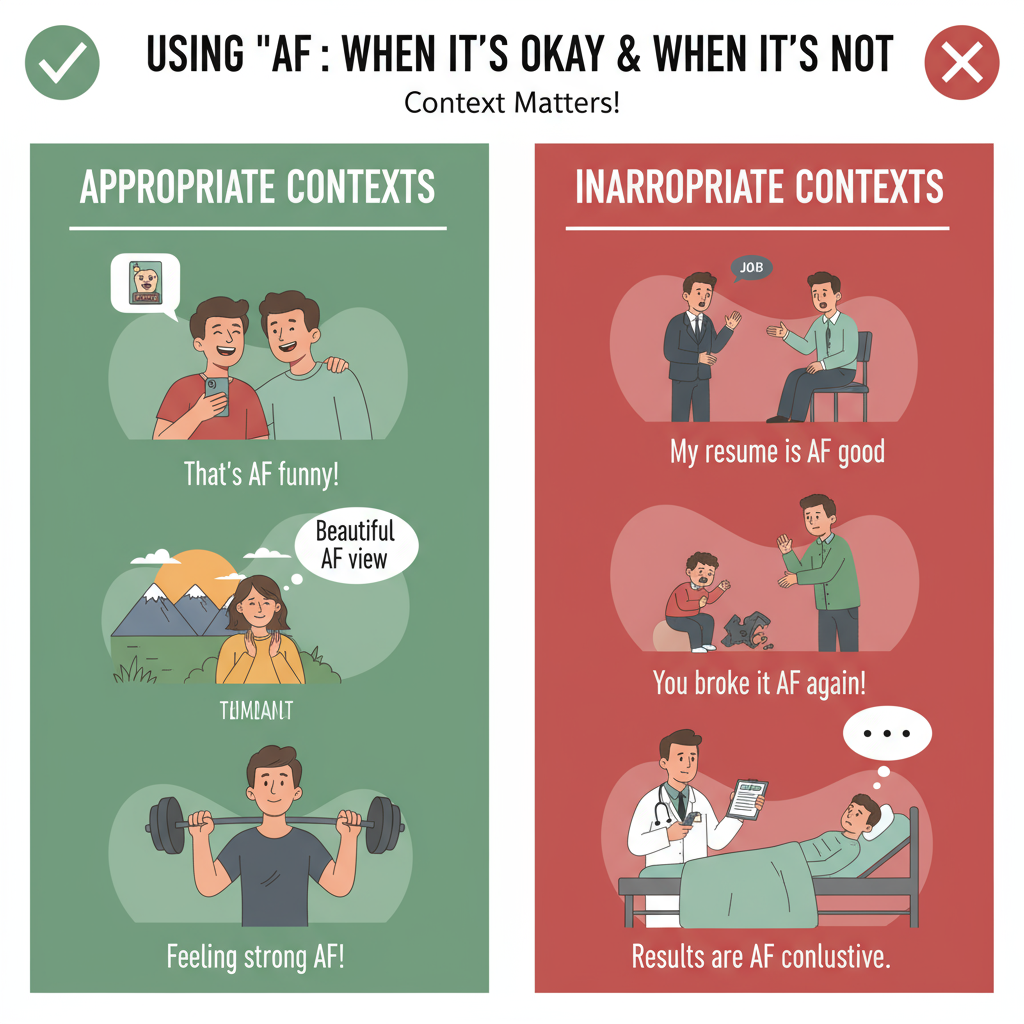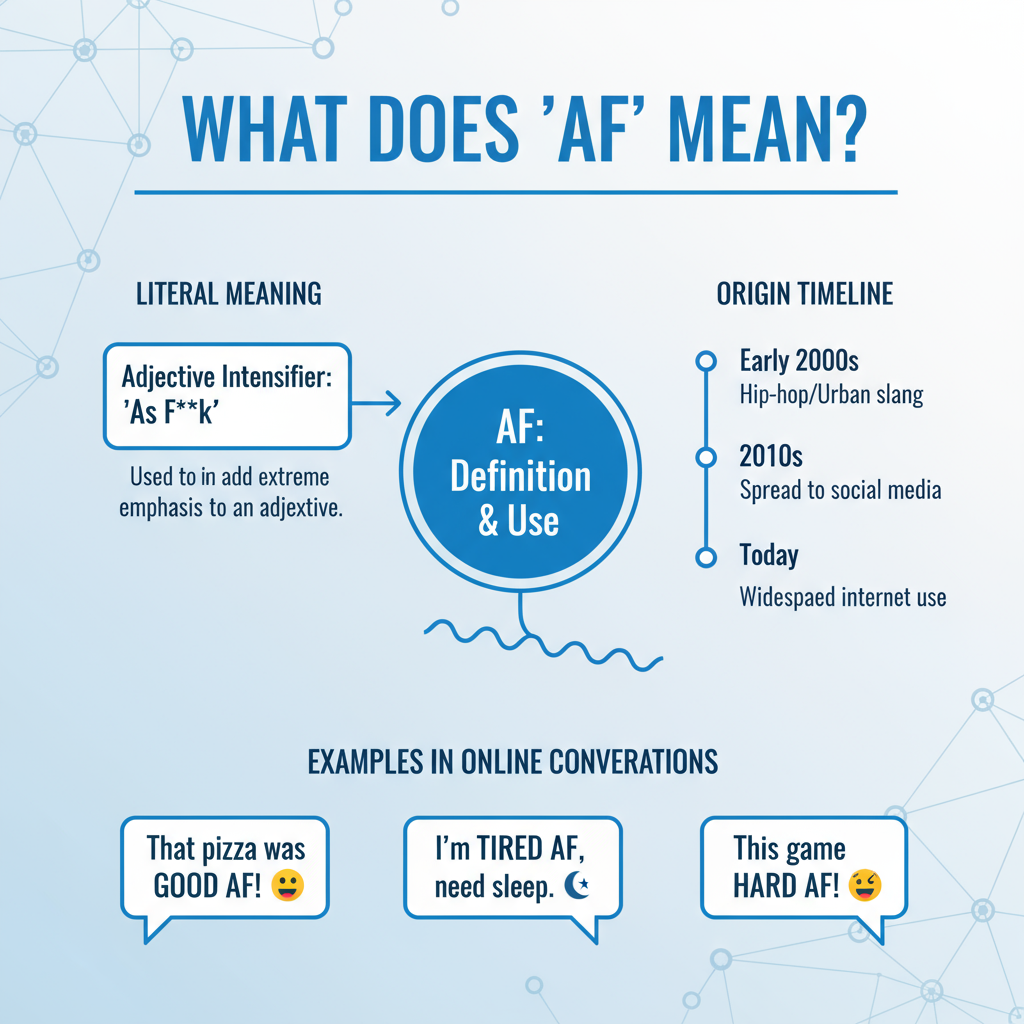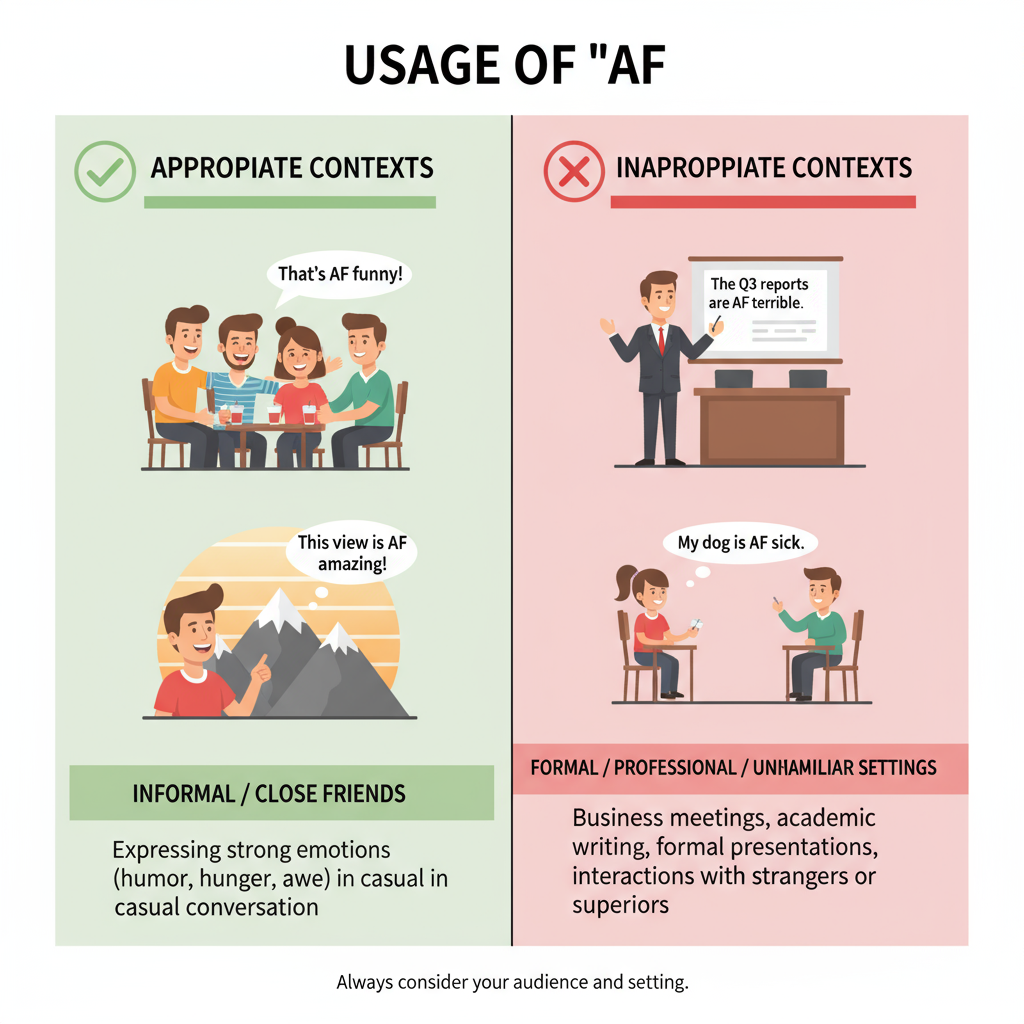AF Meaning in Social Media and How to Use It Properly
Learn what "AF" means in social media, its origins, tone, and how to use it effectively in casual online conversations and memes.

Introduction to Internet Slang and Abbreviations
The language of the internet evolves faster than most dictionaries can keep up. From acronyms like LOL to shorthand expressions like BRB, these bite-sized phrases allow users to communicate quickly and capture emotions or contexts instantly. In the realm of social media, understanding these abbreviations is essential for anyone wanting to stay relevant and relatable, particularly when engaging with younger audiences.
Among the many internet slang terms, one stands out for its simplicity and emotional punch: AF meaning in social media. If you've spent time on Twitter, Instagram, TikTok, or even text messages, you might have seen phrases like "hungry AF" or "cute AF." But what exactly does this mean, and how should it be used?

---
Origin of "AF" and How It Entered Online Culture
"AF" is short for the phrase *as f\\, a strong intensifier used primarily in informal communication. While the expression appeared in speech decades ago, it gained massive popularity with the rise of text messaging and social platforms in the early 2000s. Using "AF" lets people emphasize an adjective without typing the full explicit phrase — saving time and adding emphasis.
Its journey into mainstream internet culture was propelled by meme pages, viral tweets, and off-the-cuff online conversations that were both humorous and candid. Once emojis and GIFs became part of everyday language, "AF" cemented its role as a textual form of exaggerated expression.
---
The Literal Meaning of "AF" Explained
Literally, AF stands for "*as f\\". It acts as an intensifier, meaning it amplifies the degree of the adjective that comes before it.
For example:
- Tired AF = extremely tired
- Excited AF = extremely excited
Why It Works So Well
The abbreviation is:
- Short and punchy – perfect for the character limits of Twitter/X or for quick texting.
- Universal in tone – cross-language internet culture often picks up AF because of its association with viral humor.
- Highly adaptable – can be paired with countless adjectives.
---
Tone, Context, and Use Cases of "AF"
Tone plays a significant role in interpreting AF. It’s almost always casual and often informal to a fault. The tone can vary between:
- Humorous: “Late AF but still fabulous.”
- Complaining: “It’s cold AF outside.”
- Affectionate: “My dog is adorable AF.”
AF works best where the writer’s personality can be expressed without formal constraints — friend chats, personal tweets, fun captions.

---
Examples of "AF" in Casual Conversations and Memes
Here are some text-style examples:
A: Wanna go out tonight?
B: Nope, I’m tired AF.Instagram caption: This pasta is delicious AF 🍝Meme text: When it’s Monday morning and you realize you forgot your coffee... Cranky AF.AF is a staple in meme culture, often used to exaggerate relatable feelings. It’s also common in reaction image captions, GIF overlays, and TikTok subtitles.
---
Variations and Creative Uses
Aside from sticking to the formula "[adjective] AF", you'll find playful adjustments:
- Funny AF – used for humorous situations.
- Lit AF – slang for exciting or amazing.
- Extra AF – dramatic or over-the-top behavior.
- Chill AF – extremely relaxed.
- Cute AF – adorable to an extreme.
Users have also applied AF to ironic statements:
- “Broke AF” posted with a photo of luxury shopping bags (sarcastic).
---
Appropriate vs. Inappropriate Contexts for Using "AF"
AF isn't suitable everywhere. Below is a quick guide:
| Appropriate Context | Inappropriate Context |
|---|---|
| Personal tweets, stories, and memes | Formal reports or professional emails |
| Casual group chats with friends | Official statements or corporate press releases |
| Lighthearted blog or influencer captions | Educational materials for young children |
---
Cultural Perception and Generational Differences
AF usage isn’t uniform across age groups or regions:
- Gen Z and Millennials — More likely to see AF as normal, humorous, and a staple of online expression.
- Gen X and Boomers — May find AF vulgar or even confusing.
- Non-English speakers — Might pick up AF without fully knowing its profanity roots, especially if it’s integrated into meme pages.
This generational gap can sometimes cause misunderstandings, especially when slang moves into intergenerational spaces like Facebook.
---
Potential Issues: Profanity, Audience Sensitivity, Brand Voice Considerations
One of the reasons AF remains controversial is its origin in profanity. While abbreviations can feel less intense than the full words, audiences who recognize the meaning may still perceive it as offensive. For brands and content creators, this raises brand voice concerns.
- Risks: Alienating conservative audiences, damaging corporate image, or causing PR backlash.
- Mitigation: Use with humor only if the brand targets a casual demographic comfortable with slang; otherwise, avoid altogether.
---
How "AF" Contributes to Social Media Virality and Relatability
Part of what makes AF so sticky in internet culture is its meme potential. It’s:
- Memorable: Short enough to stand out in a caption.
- Relatable: Everyone has felt “hungry AF” or “tired AF.”
- Meme-friendly: Easy to place over a funny image or trending TikTok video.
AF often accompanies strong visuals — the juxtaposition of text and punchy images drives up shareability and viral engagement.
---
Alternatives to "AF" for Professional or Family-Friendly Communication
If you like the emphasis that AF adds but can't use profanity (even in censored form), try these replacements:
| Alternative Expression | Use Case Example |
|---|---|
| Super | Super excited to see you! |
| Extremely | It’s extremely cold today. |
| So | That was so funny. |
| Very | Very proud of this team. |
| Incredibly | Incredibly grateful for your support. |
These may not carry the same edgy vibe, but they get the point across without offending sensitive audiences.

---
Summary and Key Takeaways for Social Media Users
AF is a prime example of how internet slang evolves and adapts to new communication platforms. Originating as profanity, it became a powerful and humorous intensifier in online culture. However, users should remember:
- Tone matters — AF works best in casual, relatable contexts.
- Audience matters — Avoid in professional, formal, or sensitive spaces.
- Creativity rules — Pair AF with adjectives for humor, sarcasm, or drama.
- Alternatives exist — Use them when language sensitivity is a priority.
By understanding the AF meaning in social media, you can decide when it will enhance your message — and when to opt for something more audience-friendly.
Pro tip: Experiment with AF in captions or memes if your audience skews young and informal — but always keep brand identity and tone in mind.
---
Ready to level up your social media communication? Explore more slang guides and content strategy tips to make your brand voice stand out online.



